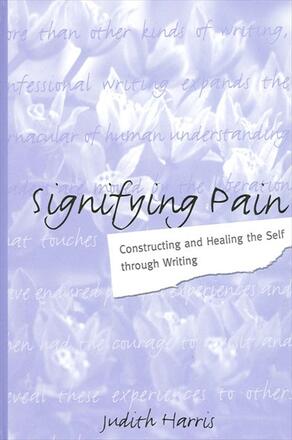
Signifying Pain
Constructing and Healing the Self through Writing
Alternative formats available from:
Explores the therapeutic uses and effects of writing in a post-Freudian age.
Description
A deeply personal yet universal work, Signifying Pain applies the principles of therapeutic writing to such painful life experiences as mental illness, suicide, racism, domestic abuse, and even genocide. Probing deep into the bedrock of literary imagination, Judith Harris traces the odyssey of a diverse group of writers—John Keats, Derek Walcott, Jane Kenyon, Michael S. Harper, Robert Lowell, and Ai, as well as student writers—who have used their writing to work through and past such personal traumas. Drawing on her own experience as a poet and teacher, Harris shows how the process can be long and arduous, but that when exercised within the spirit of one's own personal compassion, the results can be limitless. Signifying Pain will be of interest not only to teachers of creative and therapeutic writing, but also to those with a critical interest in autobiographical or confessional writing more generally.
Judith Harris is Assistant Professor of English at George Washington University. She is the author of Atonement: Poems.